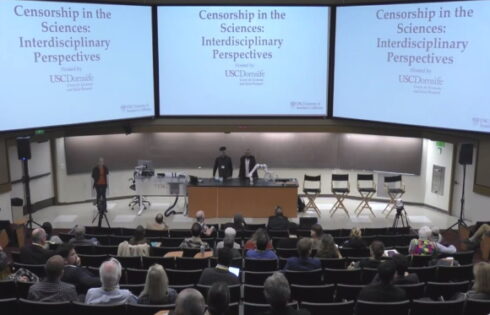
Trying to replicate the ‘moral and existential self-confidence’ that universities abandoned
Conservatives are often quick to praise alternatives to the standard four-year residential college, increasingly bloated by administrators whose jobs boil down to training students in becoming more easily offended.
The Thiel Fellowship by venture capitalist and Donald Trump ally Peter Thiel? Check. Apprenticeships? Check. Or maybe the four-year college isn’t so bad, as long as it eschews federal funding and all the social engineering that comes with it.
But some liberals are also growing tired of a system that values bureaucrats more than faculty, consumerism more than learning, U.S. News rankings more than self-reflection.
Molly Worthen, a history professor at the University of North Carolina, has a fascinating essay on rise of the “anti-college” in The New York Times. Their goal is both admirable and sad: “to prove that it is possible to cultivate moral and existential self-confidence, without the Christian foundation that grounded Western universities until the mid-20th century.”
It’s pragmatic in an age of “nones” to tell students that the quest for meaning is not limited to believers, and to make available such an education without tens of thousands of dollars in student debt.
Worthen examines programs from Alaska, where Outer Coast combines deep philosophical reading with manual labor, to Oregon, where Wayfinding Academy uses “tutor-counselors” to help students design their coursework and no one has meaningful titles or pay disparities (it sounds like Trader Joe’s opened a college).
She views most of these new academies and seminars as “summer bridge programs” that are focused on the moral and philosophical questions that “mainstream universities can’t — or won’t — take on in a comprehensive way.”
Can these alternative schools go astray in the same way as conventional colleges? Sure – Worthen notes they trace their legacy to experiments such as Washington’s Evergreen State College, which produced the pro-segregation “Day of Absence” and the permission-to-pee president.
But critics of higher ed on all sides should cheer for an ecosystem that encourages experiments and eschews the one-size-fits-all model of college.
When we drum the message into students from early adolescence that a four-year degree is the only way they’ll succeed in life, how can we be surprised that they finish college (if they’re lucky) without becoming more thoughtful citizens?
MORE: Documentary exposes vast wealth squandered on campuses
IMAGE: Anastasios71/Shutterstock
Like The College Fix on Facebook / Follow us on Twitter







Please join the conversation about our stories on Facebook, Twitter, Instagram, Reddit, MeWe, Rumble, Gab, Minds and Gettr.